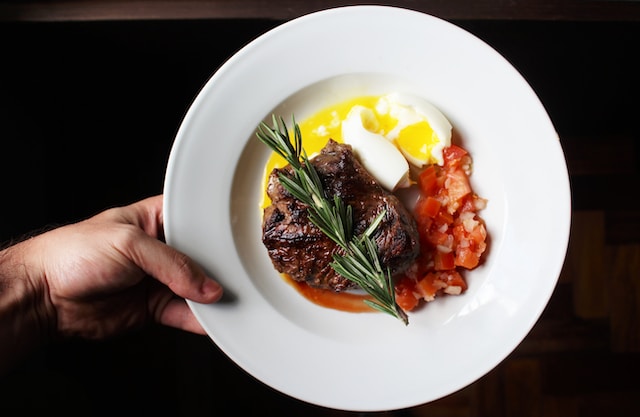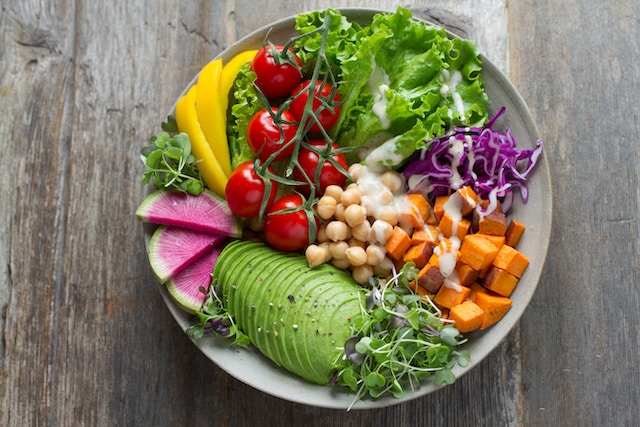A fall, an accident or a burn can put you out of your daily schedule for weeks. This is time away from your business, job, family and other responsibilities.
There are many efforts to help you heal, including medical intervention, physical therapy, and many other ways to hasten your recovery.
However, one of the most ignored ways to faster recovery is a diet rich in healing foods.
Benefits of consuming food injury recovery foods
Apart from getting you back to your routine in the shortest time possible, food injury recovery foods can;
- Prevent muscle atrophy, a condition where your muscles lose their mass and weaken after an injury
- Contribute to bone and lean mass maintenance to keep your body strong
- Improve immunity and enhance hemoglobin synthesis to regain lost blood and prevent infections
- Help regenerate friendly gut bacteria you may have lost due to too much medication
- Enhance the healing of broken bones and repair injured tissues to improve flexibility and joint mobility
With all these benefits, you can see why eating the right foods is essential when recovering from an injury.
Here is a list of foods that are excellent for healing wounds, broken bones, and torn ligaments after an injury.
6 foods for injury recovery

1. Lean protein
Proteins are the most important group of foods you should consume while recovering from an injury.
They contain essential amino acids that can build muscles and balance your energy levels throughout healing.
Some examples of healing amino acids in proteins are arginine and glutamine.
These two nutrients are known to lower cell stress levels during wound healing.
While proteins are good for injury recovery, you should consume them in the right way to benefit from them.
The best way to consume proteins is by taking small amounts of protein-rich foods throughout the day. This can boost your body’s rate of muscle regeneration tremendously.
Additionally, make sure to consume lean proteins to avoid unnecessary weight gain.
Lastly, note that you need more protein when recovering from an injury than you take in your regular diet. The right amount of protein to take during injury recovery is 2.5 – 3 grams of protein per kg of your body weight.
The recommended daily allowance of 0.8 grams per kg of your body weight will not be enough to fuel quick healing.
Some proteins to include in your injury recovery diet are lean beef, chicken breast, salmon and tuna.
You can also get lean protein from egg whites, Greek yogurt, and cottage cheese.
Vegetarians can eat oats, quinoa, nuts, tofu, tempeh, edamame, and beans, for their daily dose of protein.
2. High-carb foods
Carbohydrates are essential for injury recovery because they infuse our cells with the energy to promote quick healing.
They also contain enzymes like citrate synthase and hexokinase that are essential for injury recovery.
And while we may associate collagen with vitamin C, it’s good to note that carbohydrates can also stimulate collagen production.
Collagen forms the framework for tissue regeneration in our bodies, you must include carbs in your injury recovery diet.
If you do not take enough carbohydrates while healing from an injury, you will experience muscle mass loss.
This happens because the body breaks down the protein you eat to generate energy instead of using it for tissue repair.
However, you should measure the amount of carbs you take when recovering from an injury. This prevents diseases associated with excessive carb consumption, such as obesity and diabetes.
Some carbs that are excellent for injury recovery are sweet potatoes, bananas, brown rice, and chickpeas.
3. Fresh fruits and vegetables
Fresh fruits and vegetables are essential when recovering from injury.
They contain vital minerals such as zinc, calcium, magnesium, selenium, manganese, and folate that promote wound healing.
They also aid in collagen synthesis, which accelerates bone healing, strengthens the nerves, and reduces oxidative stress.
The antioxidants in fruits, such as anthocyanins, also fight free radical damage and reduce pain.
Green leafy vegetables such as kale, swiss chard, and arugula also have nutrients that boost the body’s immunity during healing.
These vegetables are also rich in polyphenols like quercetin that suppress the production of inflammatory proteins.
Some of the best fruits and vegetables you can take for injury recovery are berries, oranges, grapes, bell peppers, broccoli, spinach, and tomatoes.
Cruciferous vegetables such as brussels sprouts and cauliflower are crucial for injury recovery.
They contain glucosinolates that are converted into isothiocyanates that suppress inflammation and destroy infected cells.
With these factors in mind, you can see that taking fruits and veggies every day during your recovery is a great step.
However, remember to enhance the absorption of nutrients in fruits and vegetables by taking foods high in vitamin D, calcium, and healthy fats.
These are foods such as cod liver oil and egg yolks that contain healthy fats and antioxidants.
4. Healing spices and herbs
Although you may consider herbs and spices as food additives that make your food flavorful, they are also great for injury recovery.
Herbs such as garlic, ginger, turmeric, cinnamon, and black pepper, provide the following healing effects in the body.
- Fighting infections and cartilage degeneration to promote wound healing due to their antibacterial and antioxidant properties
- Lowering inflammation to prevent issues that occur due to extended immobility, such as edema
- Prevent joint discomfort and pain caused by oxidative stress during healing through their analgesic effect
5. Prebiotic and probiotic-rich foods
Constipation is common among people recovering from injuries. This is due to side effects of medication and inactivity.
In our efforts to heal the injured parts of our body, to avoid re-injury, and also due to pain, we tend to have little to no activity during recovery.
We are also relatively weak after an injury which may slow down our movement, thereby slowing down our digestive system.
Some of the issues associated with constipation during injury recovery are bloating, nausea, and general discomfort.
You can solve these problems by eating foods rich in gut-friendly prebiotic and probiotic bacteria.
The gut-friendly bacteria in these foods, such as lactobacillus, have been proven to not just keep your digestive system moving, but they also enhance the healing and prevent infections.
Some examples of foods you can take that are rich in pro-biotics, and pre-biotics are; yogurt, kefir, and sauerkraut.
6. Healthy fats
A healing diet should contain a healthy dose of omega-3 fatty acids and monounsaturated fats to fight inflammation.
The fats to avoid are saturated fats and trans fats. These fats, often present in hydrogenated and processed oils, will slow down your rate of healing.
Some foods you should eat after an injury that contain healthy fats are chia seeds, walnuts, flax seeds, avocados, and oily fish.
Healthy fats enhance your body’s response to exercise during physiotherapy and improve your overall appearance.
The vitamin E content in these foods will also boost your body’s immunity by improving the functions of cells that fight infections.
Final thoughts on food for injury recovery
These are six foods for injury healing you should include in your recovery diet. They are nutrient-dense and full of healing properties that will get you back on your feet in the shortest time possible.
Make sure you combine this diet with enough rest to enhance the repair of broken-down cells and bones.
Additionally, drink lots of water to enhance the absorption of nutrients.
While doing all this, consult your doctor for advice on the foods to avoid when taking medication for your injuries, to avoid interfering with your healing process.
Author: Lily Kane
Lily is a content specialist at Aiello Harris law firm, a New Jersey based award winning law firm, where she explores matters related to personal injury, labor, and employment law. When not hunched over her computer thinking loudly, you can find her baking, reading, or exploring the great outdoors.
Clare Weyers
1 Comment
Leave a Reply Cancel reply
Recent Posts
- Castor Oil For Better Hair Growth: Is It Myth Or Fact?
- Exploring the Differences Between Sermorelin, Ipamorelin, Ibutamoren, GHRP2, and GHRP6: Understanding Their Role in Human Growth Hormone Regulation
- Unraveling the Mystery: Understanding the Causes and Prognosis of Ventricular Tachycardia Without Apparent Heart Disease
- Understanding Grandparents’ Rights in Oklahoma: Navigating Visitation and Legal Protections
- 10 Reasons to Consider Hypnotherapy for Your Health


Nice Article !